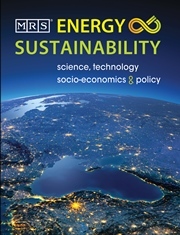Article contents
Global energy trends: Demands for scientific innovation
Published online by Cambridge University Press: 15 February 2019
Abstract
Changes in global energy trends and policies affect demands for scientific innovation. This article discusses the major emerging trends in the global energy sphere and the demands they will place on scientists for innovation in the next decade.
Changes in global energy trends and policies affect demands for scientific innovation. This article discusses the major emerging trends in the global energy sphere and the demands they will place on scientists for innovation in the next decade. With growing volumes and consumption of natural gas, innovation will be necessary for wider uses of natural gas. With this greater usage, scientists will be asked to find ways to monitor and reduce methane emissions from natural gas production, transportation, and consumption. Renewable energy also has an environmental impact, and with the increase in use of renewable energy, greener forms will need to be developed. Since electricity will be the largest sector in terms of energy demand growth, improvements will be necessary in cyber security of grids, in identifying less energy-intensive technologies for mining materials necessary for the electricity infrastructure, and in developing batteries and other forms of energy storage that do not require or require less rare minerals. Scientists need to think beyond the car and develop completely new transportation systems; great improvements also need to take place in maritime transportation, which is rapidly increasing.
- Type
- Commentary
- Information
- Copyright
- Copyright © Materials Research Society 2019
References
REFERENCES
- 10
- Cited by


